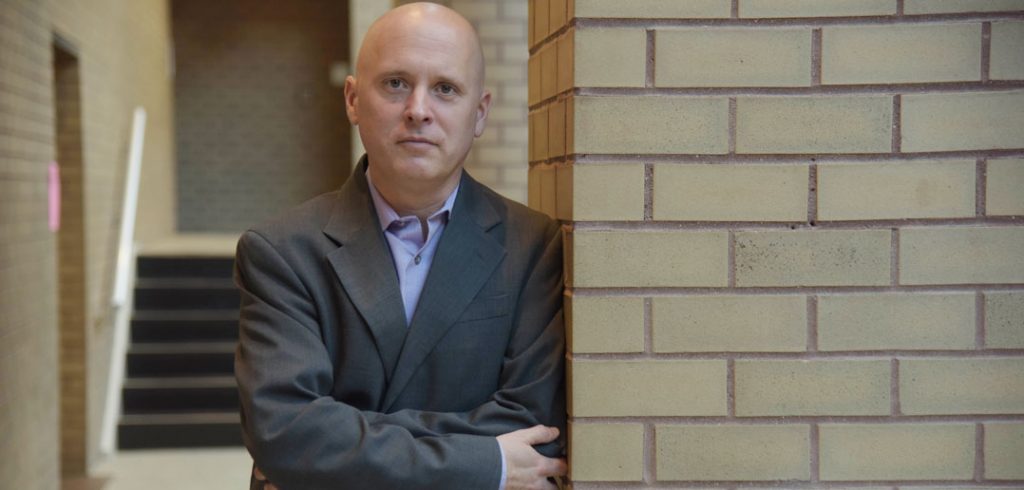We know that lying is wrong and that bribery is wrong, but what if the survival of your company is at stake?
In situations like this, Miguel Alzola, Ph.D., associate professor of ethics at the Gabelli School of Business, said the decision-maker’s choices aren’t necessarily a matter of right or wrong.
“There can be conflicts between right and right, from conflicts in time management to conflicting shareholder values,” he said.
“The answers are not that clear, and that is what creates opportunity for students to engage in a conversation.”
A ‘Win-Win’ Mindset
Alzola teaches courses in corporate social responsibility and business ethics. “Our best students have a win-win mindset,” he said. “They recognize that it’s in the best interest of the shareholders to protect employees and treat customers well.”
His research focuses on character-based ethical theories in business. Alzola found that people make distinctions between the virtues that they attach to being a good human being, and the character traits that they need be successful in their professional roles.
One key question that he is exploring is whether one’s character can be corrupted by participating in improper business practices.
“It’s undeniable that you have a social role that you play in every group in which you belong,” he said. “These groups can have an impact on the way you perceive whether your actions are a problem or not.”
Examining the Underlying Principles
Prior to joining Fordham in 2008, Alzola worked in the oil industry during the ‘90s in his home country of Argentina. Corruption, bribery, and favoritism were widespread in the industry at the time. The experience inspired his interest in virtue ethics and moral psychology.
Alzola reviewed case studies in leadership and business in which individuals strayed from their values. He also explored the different ways people frame a problem, in order to choose an alternative course of action in tricky business dealings.
In many of these situations, the decision-maker is faced with disparate interests: Employees want higher salaries. The shareholders of a company demand hire revenue. Meanwhile, customers want better service.
“We try to provide a platform to initiate a conversation among the students, which is not only connected with the case studies, but also with their own values,” said Alzola. “It allows them to look at their convictions critically. “
Mainstream business ethics tend to evaluate different choices based on the consequences of the decision-maker’s actions or the means they use to achieve their desired outcome.
Since there is a greater emphasis on whether the decision-maker’s action is permitted or prohibited, Alzola said the character of the decision-maker is often overlooked.
“Ethics is not only about what you do, but how what you do reflects on who you are, and who you will be as a result of performing the action,” he said.
Making a Better Choice
In his courses, Alzola has advocated an integration of business, legal, and ethical outlooks to help students effectively dissect contemporary business dilemmas, from pay equity and privacy protection to conflicts of interests and corporate espionage.
“Psychology has found that the more sophisticated you get in framing a problem, the more likely you’re going to behave ethically,” said Alzola. “Framing is a key part of good decision-making.”
“It’s about finding long-term solutions to short-term conflicts,” said Alzola. “You have to think about the company, 10, 20, and 30 years from now.”
He said the onus is also on business leaders to develop organizational structures and systems that help people to choose better.
“Part of it is recruitment, and the other part is internal development,” he said. “Leaders have a responsibility to create systems that are aligned with what people want to do and what they ought to do in order to be better at what they do.”


